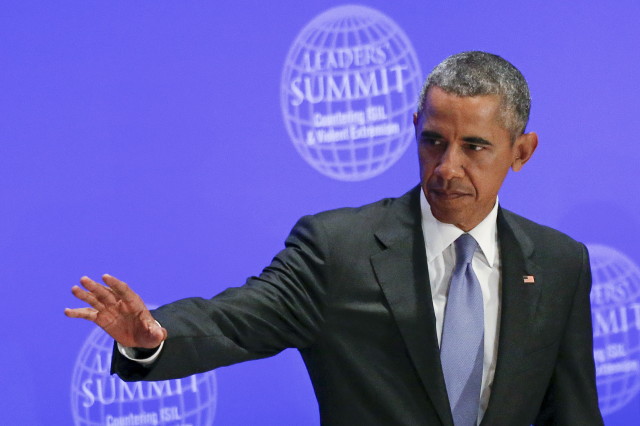As Undersecretary of State for Public Affairs, Rick Stengel is oversees U.S. efforts to counter violent extremism by the so-called Islamic State and other terrorist organizations around the globe. The State Department’s Center for Strategic Counterterrorism Communications (CSCC) launched a social media campaign, #WhyTheyLeftDaesh to highlight the stories of those who have defected from IS.
In an interview with VOA State Department Correspondent Pam Dockins on September 25, Stengel discussed the goals and challenges of countering violent extremism.
Beware the Hoax of Countering Violent Extremism
Rami G. Khouri – Al Jazeera America
The main problem in this well-meaning effort is that none of this has worked in recent years…The White House Summit on Countering Violent Extremism in February was supposed to jump-start this global assault on violent extremism, but in recent months we have seen violent extremism only continue to expand in many countries.
Specifically, the countering violent extremism approach ignores four of the most important drivers of political violence and terrorism in the Middle East: 1) sustained socioeconomic stress, deprivation and marginalization, including rampant official corruption, that leaves several hundred million people destitute and powerless; 2) chronic, Western-supported authoritarianism and dictatorships that leave citizens without any political rights in most of the societies that generate terrorism;
3) the impact of sustained Western militarism in the region over the last few decades, especially the Anglo-American war in Iraq; and 4) the persistent radicalizing impact for the past half-century of the Arab-Israeli conflict, Israeli colonization of Arab lands and U.S.-led Western acquiescence in Israeli policies.

President Barack Obama waves before the start of the Leaders’ Summit on Countering ISIL and Violent Extremism at the United Nations General Assembly in New York on Sept. 29, 2015. (Reuters)
U.S. Turns to ‘Zero Dark Thirty’ Writer for Anti-ISIS Propaganda
Asawin Suebsaeng – The Daily Beast
One of the goals was to connect Middle Eastern filmmakers with influential Hollywood figures to start plotting “how to engage and empower storytellers [to] create alternative and positive narratives, and how to talk about youth empowerment,” according to the official, who works on these initiatives.
For instance, these filmmakers discussed producing content that promotes stories of young people living in the region who have rejected Islamist terror and work to improve their communities….
As for whether or not this will actually lead to progress in a media war against the Islamic State, that’s an entirely open question. But since ISIS propagandists have been so keen to adopt the flashy editing techniques of Hollywood and horror movies, perhaps it’s a sign that Hollywood might as well help others fight back.

